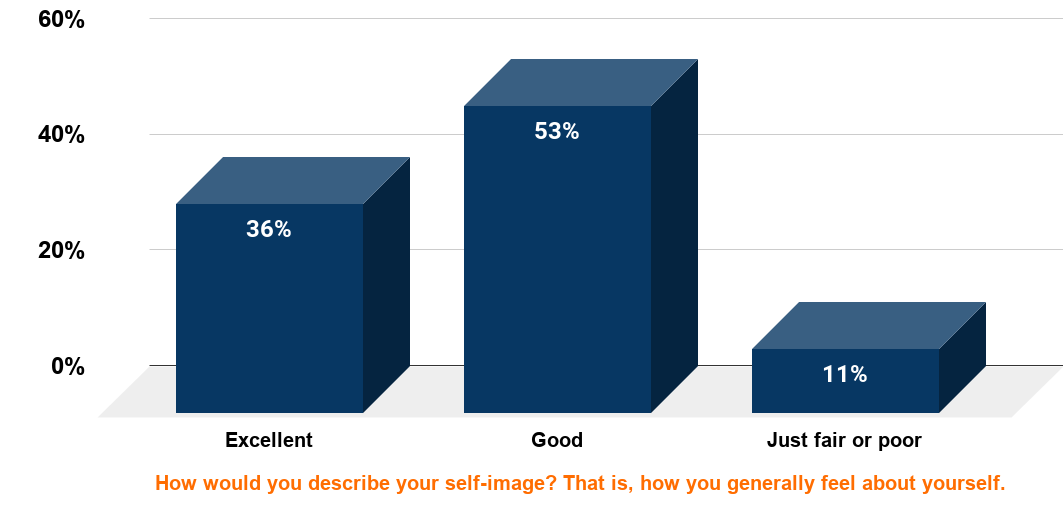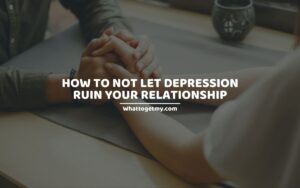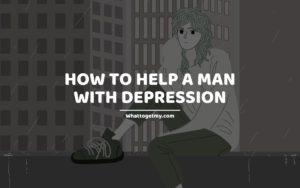What Does It Mean to Have Low Self Esteem?
WhatToGetMy Instructional Article
- This article provides in-depth insight on the subject of low self esteem, from the definition of low self esteem to the signs of low self esteem in a man/woman, and dealing with low self esteem in adults.
Health, Age, and Income Factor Into Americans’ Self-Image (2003). Source: Gallup

Gender confidence over time (2018). Source: Forbes

Self-esteem is a very important aspect of human life that is critical for one’s ability to not only survive, but thrive, in society. This old survey from 2003 seen on Gallup is an encouraging reflection of self-esteem amongst the +1,000 Americans surveyed at the time.
The second chart from Forbes, which is more recent, suggests that self-esteem amongst women when they are in their mid-20s to mid-30s is lower than their male counterparts. There could be several reasons for this, which will be discussed here but not in the context of women. And this is because the burning issue of low self-esteem is not peculiar to just women. It is a concern that cuts across both genders.
In this article, we discuss this issue, its causes, and how to tackle it. Strap your seat belts and let us begin.
Don’t forget to check out our very useful and resourceful article on Influences that can affect a person’s life to learn more about quality of life and how it ties in with your overall self-esteem.
What is low self esteem? Definition of low self esteem.
Self esteem means how you see and perceive yourself and your worth. Low self esteem means a low estimation of yourself and worth. When you have low self esteem you don’t think or place much value on yourself and have no self confidence. You don’t think your views, values, or opinions count or matter. You tend to think there are other people who are better than you and deserve better than you deserve.
Having low self esteem is dangerous and detrimental to your overall health and well-being. It will limit you greatly from attaining your full potential. Having low self esteem is also a quick recipe for depression and anxiety.
It must be said though, that having low self esteem is not a disease or a mental ailment. It is rather a mental disposition and negative mindset. However, while it may not be a disease, if not dealt with, it can lead to both physical and mental problems as earlier pointed out.
In the next sections, we will be giving you very practical tools and ways to deal with/tackle low self esteem, if you or someone you know is struggling with it.
Learn more about depression and its signs in our helpful articles on 15 Ways How to help a man with depression and How to know if your teenager is depressed.
Why do people have low self esteem and Where does low self esteem come from?
Health, Age, and Income Factor Into Americans’ Self-Image (2003). Telephone interview of 1,006 randomly selected adults aged 18 and above. Source: Gallup

There could be several reasons for a person’s low self-esteem, but it is largely caused by a person’s environment and upbringing, as well as the negative (or positive) life experiences they have gone through (and this is also seen from the responses in the above chart).
Some examples of cultural, environmental, upbringing, and life experiences that have affected or caused low self esteem in some people, are:
- Growing up in an abusive home has been known to scar and affect not just the life and self esteem of the victim of abuse, but also that of any child or children raised in such an environment.
What the abuser communicates indirectly to the children is that they are undeserving of being treated properly. The abuser also makes the victim feel small and worthless, and this will always have a negative and adverse impact on the victim’s self esteem.
- Some cultures especially in developing countries are known to subjugate women and perpetuate a cycle of self-doubt and low self esteem.
Women in such cultures are told that they are not good for anything beyond being a baby-making and sex machine for the man’s sexual desires and needs. In such cultures, women are constantly made to feel that their value and worth is tied to what a man says it is. This would probably explain why in many developing countries, women are rarely seen in public life and a very small number hold public offices.
And even when such women leave such cultures to more advanced cultural places, the ingrained nature of that upbringing still remains with them and so is its negative effect on their self esteem.
Men in such cultures may also have a low self esteem if they feel they are not living up to the gendered role foisted on them. When they begin to compare themselves to other men around them and start to feel less than adequate, this leads to low self esteem. In most cases, their partners end up being on the receiving end of their acting out their low self esteem, which is wrong.
And even when they come to places with more advanced cultural thinking, they still carry that upbringing and mindset until they can face it squarely and deal with it.
- A person who grew up being bullied or who went through severe trauma like rape and abuse almost always struggles with low self esteem until they get professional help and therapy.
Bullying, trauma, and abuse makes the person who goes through it feel helpless and powerless. This feeling of helplessness and powerlessness eats away at their core and makes them start to feel small and worthless.
- A child who is constantly talked down on by his/her parents would invariably grow up with low self esteem.
When parents talk down on their children or make them feel dumb and stupid, they without realizing it, eat away at the child’s confidence and sow deep seeds of self-doubt that would follow that child well into adulthood. Such children also grow up doubting their parents’ love for them and resenting their parents.
- Other negative life experiences like a toxic relationship, a toxic workplace, or a boss, amongst other things, can sow seeds of self-doubt that would eventually lead to low self-esteem.
If for example one is dating a narcissistic partner or working for a narcissistic boss, they would without a doubt always make you feel small and worthless, and this would, in turn, eat away at your self esteem until it is very low and even non-existent.
This list is by no means exhaustive, but only shows in broad strokes some known instances and causes of low self esteem in people.
How do you know if you have low self esteem? 11 Signs of low self esteem in a man/woman and extremely low self esteem symptoms.
Sometimes, it is not always easy to know if you have low (or extremely low) self esteem. Oftentimes, the signs of low self confidence are confused with being modest or humble. But they are not the same at all. A modest person can still have a high sense of self-worth and self confidence.
The following are low self esteem behaviors that point to having low self esteem or lacking self confidence.
1. Self-hate and self-loathing.
This is low self esteem at its lowest. When a person has extremely low self esteem, they never see anything good in themselves. They tend to judge themselves too harshly and even call themselves names that they would not use on anyone else.
And you might read this and think it is not possible. But when a person says things like “they always ruin everything they touch”, or “they are so stupid it’s insane”, or “they can’t ever seem to get anything right”. These are remarks and comments of self-hate and self-loathing.
If you know someone prone to saying such negative words about themselves, don’t take it lightly or ignore it even if you think they said it in jest. As the saying goes “many a truth is said in jest.” That person is struggling with low self esteem and needs to be helped.
2. You don’t trust your own decisions.
A person with low self esteem hardly trusts themselves and their decision-making processes. This flows from their feelings of not being good enough and not believing they have anything of value to bring to the table. This self-doubt and low self esteem makes them very indecisive and very slow to make decisions.
3. They always defer to other people’s opinions and thoughts and rarely have or share your thoughts and opinions.
Do you find it difficult to trust your judgment, opinions, and thoughts? It is most likely because of underlying low self esteem. A person with low self esteem always thinks that other people have better opinions and thoughts than themselves. And because of this, they rarely have their own opinion(s). You can see this in how much they want to hear what the person they consider superior has to say before they can move along with what they need to do.
4. Being overly apologetic and saying you’re sorry even when you don’t need to say so.
Being overly apologetic may sound sweet and polite, but it is actually a reflection of underlying low self esteem. A person with high esteem knows when to say they are sorry and when not to. A person who always apologizes for even the things they shouldn’t be apologizing for does so unconsciously because they doubt and question themselves and feel inferior. Their apologizing is a way to cover their feelings of inferiority.
5. Being afraid to speak up in public even when you know you have something to add or contribute.
This will normally happen in a group setting where maybe each member of the group has to make a contribution or air their views on a subject of discussion. A person with low self esteem never thinks they have anything of value or importance to add to burning issues. This is because low self esteem comes with self-doubt and always second-guessing one’s self.
Even when they feel deep down that what they have to say might make a significant difference, because they feel inferior to every other person around, they would much rather stay mum and disappear in the crowd. The fear is always that they may say something and everyone will find it stupid and look down on them and make them feel even worse about themselves than they already do.
If this is you, and you’re in doubt whether this is true, sincerely ask yourself why you can’t bring yourself to say what is on your mind, especially in those cases where no one has voiced the same opinion(s)? Is it because you’re afraid? What are you afraid of? And isn’t that fear itself evidence that you doubt yourself and the importance of what you have to say?
Whichever way it is looked at, when you critically assess anyone who has difficulties or challenges sharing their thoughts in public, you are almost guaranteed to find low self confidence/low self esteem as the root cause.
6. Constant comparison with other people’s lives.
Another thing that happens when a person has low self esteem is that they start comparing themselves to everyone else. Whenever you find a person who can’t seem to make a statement about themselves without having to use another person to compare with what they have or have achieved, low self esteem and low self confidence is lurking in the shadows.
When a person is confident in themselves, they know that it does not have to depend on other people’s lives because everyone is unique and special in their way.
7. Making an unreasonable big deal out of mistakes and being an excessive perfectionist.
Extreme perfectionists almost always have underlying low self esteem issues. Being perfect and without reproach is a persona and wall they have built as a way of trying to cover their feelings of insecurity and self-doubt. And when things suddenly go awry, they fear that people will take that as meaning that they are not good enough thus giving voice to how they secretly feel about themselves.
And sometimes you will find that such people, especially when they occupy leadership and management positions, will make the life of their subordinates a living hell because they will take out their paranoia on their subordinates. Nothing their subordinates do is ever good enough. And this is because they are projecting their feelings of low self esteem on their subordinates.
8. They are overly sensitive to all criticisms including constructive ones.
Criticism is a very touchy area for a person with low self confidence. Criticism sounds like a self-fulfilling prophecy and that is why they take it very badly. Even when they get constructive criticism, what they immediately hear is you telling them they are not good enough or useless. And because this is how they already feel about themselves, they don’t take it well at all.
9. They want to please everyone, often to their detriment.
People with low self confidence or low self esteem are generally people pleasers. They want to please everyone because they want to be loved by everyone. Their thinking or belief is that if everyone likes them then it means they are not as small and insignificant as they feel about themselves. In a way, pleasing everyone, or at least trying, helps give a temporary boost to their low self esteem.
But then they quickly realize that they cannot please everyone, and most people take advantage of people pleasers. This makes them miserable and unhappy, but they cannot bring themselves to say no, even when they know they should. And this is because they are afraid that if they disappoint the person, they’ll stop seeing them as being awesome, reminding them of how less worthy they already feel.
10. They talk down on other people’s achievements as a way of feeling good about themselves.
People who think they are better than others tend to do this a lot. And they feel that way because they in fact have low self esteem, and feeling like they are better than others is their way of trying to fix their self esteem issues. This is another variant of comparing oneself to other people. They will only talk down on another person’s achievements because they are comparing themselves to that person and hate the feeling of smallness they have when they place their life side by side with this other person’s life.
Anyone who can’t seem to give credit where it is due, and always has to find something negative or bad about another person’s accomplishment almost always has underlying low self esteem.
11. They tend to overcompensate by oversharing personal details about themselves even when it is not relevant or necessary.
This is another way a person with low self esteem tends to feel good about themselves. Deep down they feel like they haven’t accomplished or done much with their lives, and this makes them feel small and inadequate.
But that feeling doesn’t just end inside them. They have a fear that everyone else can see it too, even when this is not the case. And so, because of that fear, you will find someone with low self esteem trying to make every conversation about something they have done or not done in their personal lives.
When you see this, know that they are overcompensating and trying to feel good to those around because inside they feel small. Bragging is their way of trying to prove a point to those around, even when it is uncalled for and unnecessary.
Confident people know they don’t need to prove anything to anyone.
If you’re still not sure how self-confident you are, even after reading the above signs, you can also take one or more of these free trusted self esteem evaluation tests to see how you are faring with your self esteem.
- The Rosenberg’s self-esteem scale developed by sociologist Morris Rosenberg;
- Self esteem test by Psychtests; and
- Self esteem test by Psychology Today (although with this one, if you wanted the full report you will need to pay $6.95. They will however provide the summary for free).
What to do when you have low self esteem – dealing with low self esteem in adults and 7 ways how to fix low self esteem.
To deal with low self esteem:
1. Accept that you have a low self esteem issue.
This is where it all starts. Until you can be honest with yourself that you have underlying low self esteem, you won’t try to deal with it.
This may sound simple but for the one who is struggling with low self esteem, it is far from easy. It is easier to try and explain away low self esteem as something else.
Most times a person with low self esteem sees themselves as the victim as a way of not facing up to the fact that they have a problem. Playing the victim is an easy way out of taking responsibility for dealing with low self esteem.
2. Identify what the self esteem symptoms are for you.
Knowing what the symptoms are will help you trace the origins of the problems and tackle them. Don’t try and rationalize or explain away your symptoms as something else or you will never deal with it.
3. Practically and consistently affirm your self-worth and self confidence.
The common denominator in all low self esteem cases is self-doubt and lack of self confidence. You are unique and important, as everyone else on this planet. No one is better than you and you are not better than anyone else, we are all equal in importance. Once you understand this, always affirm it to yourself. And you can do so in the following practical ways:
- Speak in public often.
You should especially do this if you are afraid of speaking in public. Push yourself to take baby steps to do this. At the next office meeting, challenge yourself to raise your hand and say one sentence or two.
Understand that you don’t have to wait until you are confident before speaking in public. If you are waiting for this to happen, it may never happen. Doing it afraid is better than waiting for an opportune time that may never come.
Your voice may tremble ever so slightly but shut the voice in your head that tells you that you sound like crap and are making a mistake.
Here is what will happen once you take that bold first step, confidence will build up and you will notice that at the next meeting you can say two or more sentences. And just like that, with the baby steps, you start walking, running, and owning that office meeting.
- The next time you’re tempted to compare your life with someone else’s life, stop yourself and ask why that is relevant or necessary.
Ask yourself how that changes or adds anything of value to your life. Once you can see that there is no value add and that it only wastes your precious time, that will hopefully dissuade you from wasting time with it.
- Tell yourself that your mistakes don’t define you and that mistakes are a part of the learning process of life.
This is important especially for those times when you decide to be too hard on yourself.
- Place yourself on a self-imposed ban or fast from posting any personal details of your life, however big or small, on social media.
And if you want to rationalize it, ask yourself what purpose the information you are about sharing serves. Ask yourself why it is so important to share it and what it will achieve. Will it change the price of milk or bread or add any value to anyone’s life?
Chances are that the answer to all of these questions is that no use or purpose is served by what you are about to share. Then why share it.
Place yourself on a two-week ban and gradually increase it until you get the hang of it.
- Practice acknowledging the strengths of other people both privately and publicly.
This will help you with coming to terms with the fact that their awesomeness does not in any way diminish your self-worth and self-value and confidence. This also tells others that you are confident in who you are.
- Next time you want to take offense to criticism, stop yourself.
Ask yourself why what they say hurt you so much and then try to pick out the constructive aspect of that criticism and tell yourself that it will make you a better person. Accept those positive and constructive aspects and adapt them to make yourself a better person.
When you start learning to accept criticism, it stops having power over you. You learn to start harnessing it for your good.
- Stop the self-deprecating talk.
Whenever you want to talk down to yourself, catch yourself and keep your tongue in your mouth. Ask yourself why you would tell yourself things you can’t even tell someone else. Find the opposite and positive of what you were about to tell yourself and instead affirm those positive virtues as who you are. Speaking positive words to yourself will give your self confidence a boost.
- Keep people who make you doubt and question yourself at arm’s length.
If you are in a toxic relationship where this constantly happens, you need to leave that relationship. And if it is a toxic work environment, you also need to leave that job and find another one. The fight for your self-confidence is so important that you need to be aggressive in your approach.
Good friends will help boost your confidence and make you feel good about yourself. If you don’t have any of these, cut off from those that steal your confidence. It is better to be alone and without friends or a partner than with harmful people.
If you don’t know when you should leave a toxic relationship or a toxic job, let our articles on When should you give up on a relationship and When to quit your job immediately show you all you need to know to make that decision.
4. Keep a journal of your progress.
Let this be between you and yourself. If you need to share it, let it be with a trusted friend who is helping keep you accountable and on track. Document each step made towards progress, however small you may think it is.
5. Celebrate those “small” victories too.
They will give your self confidence a boost like you don’t know.
6. Find a cause to channel your energies to.
Being generous to others is proven to help with boosting self confidence. This is because adding value to another person’s life releases feel-good hormones which in turn give your self esteem a boost.
Check out our helpful articles on Generosity activities for adults and Ways to show generosity to others for ideas of generosity causes you can try out.
7. Don’t be too hard on yourself and learn to forgive yourself.
This final point is very important. Always remember that mistakes are a part of the journey of life. Everyone makes mistakes including the people you think are better than you.
No one is immune from mistakes but you don’t see people beating themselves to death over a mistake. There is no reason for you to be that way with yourself.
Once you accept this, you will see mistakes as a growth curve and take it in stride. Take the lessons you need to learn from them and move on from it.
When you consistently practice these steps, slowly but surely, your self esteem will take a turn for the better and you will have healthy high self esteem in no time.
Frequently Asked Questions.
- Why is my self esteem so low/why do I have such low self esteem?
This will need you to do deep introspection. You can use some of the examples we listed in this article in looking at your experiences and environment to understand what could be affecting your self esteem and bringing it down.
- What to tell someone with low self esteem?
This can be a difficult one because they may feel attacked. Watch out for any self-deprecating talk and ask them why they would believe such about themselves. Or rather, affirm them positively when they talk down on themselves. When you see them questioning themselves, speak positive words of encouragement to them to give them a boost.
- Which is not a sign of low self esteem?
Being confident in yourself and being modest and humble for instance, are not signs of low self esteem.
For so long as you are not doubting yourself and seeing yourself as small and less than valuable, you do not have low self esteem.
- I am struggling with low self esteem, what do I do?
Follow all of our practical 7 steps in this article and you will be on the right track to take back your self esteem.
- How do you know if you have low self esteem?
You will notice some or all of the 11 signs of low self confidence listed in this article. Once you see yourself exhibiting any of those low self esteem behaviors, you can be sure you have poor self esteem.
In Conclusion.
Self esteem is important and crucial to navigating life well. Having low self esteem will be detrimental to your physical and mental health and wellbeing.
Pay attention to your reactions and responses to be sure that they are not indicative of underlying low self esteem that needs to be nipped in the bud. Let our list of 11 signs and symptoms guide you in that assessment.
And if your assessment reveals that you need to address underlying low self esteem, waste no minute. Immediately put in place the 7 practical steps also set out in this article, and take back your self esteem.
01 HOUR 29 MINUTES
ESTIMATED TIME DESIGNING AND UPLOADING THIS ARTICLE
10 HOURS 38 MINUTES
ESTIMATED TIME RESEARCHING AND WRITING THIS ARTICLE
You Might Also Like

21 Warning Signs Of Getting Fired and What You Should Do
Warning Signs Of Getting Fired and What You Should Do WhatToGetMy Instructional Article Some employers will never come out outright to tell you they want to fire you. They will instead resort to scrupulous and underhand tactics and signs they want to fire you. Are

What to Say to a Friend Who Is Depressed – 11 Things to Talk About With a Depressed Friend
What to Say to a Friend Who Is Depressed – 11 Things to Talk About With a Depressed Friend WhatToGetMy Instructional Article It can be quite challenging knowing how to support a friend with depression because dealing with a depressed friend requires extra care. We

7 Ways How to Explain Depression to a Spouse
7 Ways How to Explain Depression to a Spouse WhatToGetMy Instructional Article If you suffer from depression but you don’t know how to explain depression to a spouse, then this article is for you. We have compiled several ways on how to help someone understand

How to Not Let Depression Ruin Your Relationship: 9 Ways to Help Manage Your Depression
How to Not Let Depression Ruin Your Relationship: 9 Ways to Help Manage Your Depression WhatToGetMy Instructional Article Sometimes depression hurts relationships and it can be hard to watch people that you love, leave your life because you could not see eye to eye on

9 Signs Someone Is Pretending to Be Happy
9 SIGNS SOMEONE IS PRETENDING TO BE HAPPY WhatToGetMy Instructional Article There are many reasons why people pretend to be happy. Pretending to be happy when you are not happy is not ideal but sometimes convenient depending on the sensitivity of the situation. Faking happiness

How to Get Motivated to Study When You’re Depressed?
How to Get Motivated to Study When You’re Depressed? WhatToGetMy Instructional Article Depression is a serious illness that causes a persistent feeling of sadness and loss of interest. If you think you’re depressed you should talk to a therapist because that’s the best way to

15 Signs Someone Thinks They Are Better Than You
15 Signs Someone Thinks They Are Better Than You WhatToGetMy Instructional Article There are 3 main reasons why people generally have the whole better than you attitude. Read on to find out what these reasons are. When a person thinks they are better than you,

Why Is Challenge Important in Life: 7 Reasons Why We Should Embrace the Challenges We Face
Why Is Challenge Important in Life: 7 Reasons Why We Should Embrace the Challenges We Face WhatToGetMy Instructional Article The question why is challenge important in life may seem a bit daunting when you first look at it or hear it. Because it feels like

15 Ways How To Help A Man With Depression
How To Help A Man With Depression WhatToGetMy Instructional Article This article will help you to understand what causes depression in men, the signs and symptoms of depression in men, and how to help a man with depression, whether the man is your spouse/husband, your

11 Effects of Living with an Alcoholic Spouse and How to Live with an Alcoholic Spouse.
11 Effects of Living with an Alcoholic Spouse and How to Live with an Alcoholic Spouse. WhatToGetMy Instructional Article Living with an alcoholic husband/wife can be a nightmare for the spouse who is not an alcoholic. It is a rollercoaster of emotions filled mostly with


